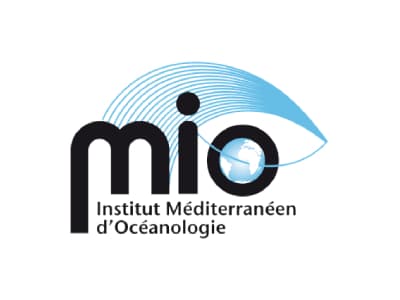What is ocean acidification?

Depuis le début de l’ère industriel, le CO2 a augmenté de 45%. Ce gaz, contribue au réchauffement climatique ainsi qu’à l’acidification des océans.C’est quoi l’acidification des océans ? On y […]
Invasive red algae detected off Port-Cros island

Discovered last December by researchers from the Institut Méditerranéen d'Océanologie off the island of Port Cros, Lophocladia lallemandii is a filamentous red alga native to the Mediterranean Sea.
BathyBot/BathyReef - A rover and its docking station to study the abysses

Beyond a thousand metres, we are in the deep ocean, rapidly plunged into total darkness, a vast and little studied space that is the scene of unprecedented phenomena. This is where [...]
IRD and MNHN officially sign the Punta Arenas Declaration, Chile

Léa Cabrol (MIO-MEB), representative of the Institut de recherche pour le développement (IRD)-MNHN in Chile, signed the Punta Arenas Declaration last week with the national authorities, represented in particular by [...].
Scream for the Oceans Day

The MIO teams will be taking part in Cries for the Oceans Day on 22 January at the Théâtre de la Criée from 11.00 a.m. Understanding and [...].
Trace of human pollution in skipjack tuna meat

An international team, including the MIO, has described for the first time the mechanisms that lead to mercury contamination of Pacific tuna. It shows the role played by [...]
Tiny particles at the controls of climate mechanics

The great mechanics of the Earth's climate is an extremely complex system, based on a subtle balance of different micro-processes. These include carbon exchanges at the surface of the ocean [...].
First RERIPA tenders announced!

The European Research and Innovation project RERIPA "REnforcement des ecosystèmes de R&I pour contrer les impacts du changement climatique dans le PAcifique, 2021-2025" has just published its first two calls for proposals [...].
"C'est pas du vent" on RFI: Discovering the infinitely small world of the ocean

Micro-organisms account for more than two-thirds of the biomass of the world's oceans. Plant plankton, animal plankton, viruses, bacteria... This microbiome is little known, yet it captures carbon, produces [...]
The waltz of phytoplankton in the Mediterranean

Satellite observations and numerical simulations have highlighted the influence of fine-scale structures (eddies, fronts, etc.) on phytoplankton, favouring the input of nutrients at the surface and thus influencing the [...].




